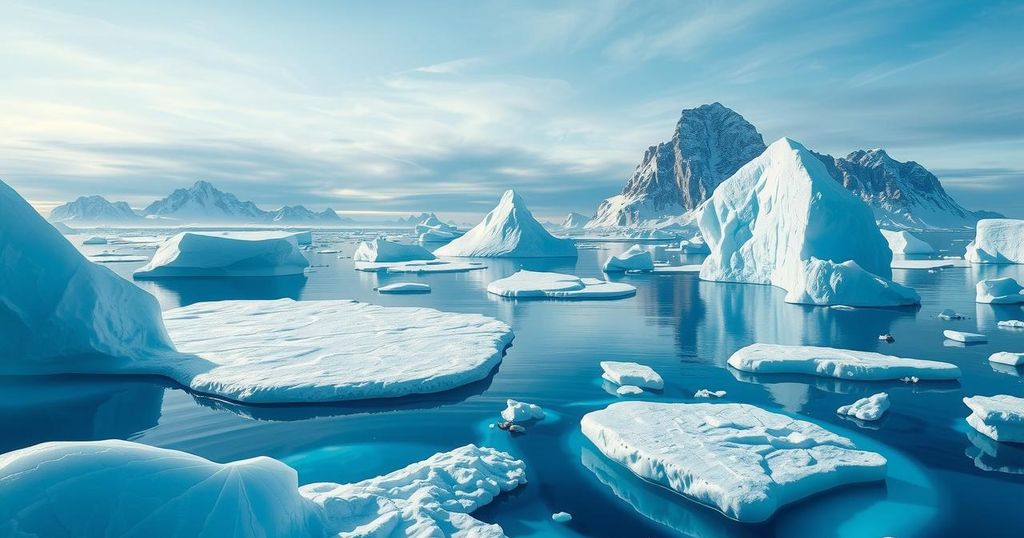The Fight for the Arctic: Climate Change Opens New Fronts for Russia

David Lammy, the British foreign secretary, emphasized the urgent need to address climate change and Russian military activity in the Arctic during his tour of Svalbard. The melting ice is allowing greater Russian maneuverability, raising concerns about its increasing naval presence. Meetings with military officials in Norway highlighted the necessity for NATO to bolster its defenses in the region to deter potential threats to western security.
The battle for control over the Arctic is intensifying, fueled by climate change and Russian activities in the region. David Lammy, the British foreign secretary, recently embarked on a significant trip to the Arctic, which included stops at the Svalbard archipelago, the northernmost land inhabited on Earth. There, he highlighted the urgent need to address the geopolitical conflicts arising in this sensitive area, exacerbated by climate change impacts.
On this journey, Lammy emphasized that the ongoing climate crisis along with Russia’s aggressive stance in the Arctic must be treated with the utmost seriousness. He noted firsthand evidence of climate change effects, such as retreating ice affecting Svalbard’s shorelines and waterways. This melting ice is providing Russia with new freedom to navigate the Arctic, raising concerns about its increasing military activities in the region.
During his visit, Lammy observed the movements of Russian naval forces in these waters. He remarked, “We do see Russia’s shadow fleet using these waters,” indicating heightened submarine activity and unusual sabotage of undersea cables, which is a new and pressing concern for North Atlantic security.
In Tromsø, Norway, the foreign secretary met with military officials who reiterated the necessity of vigilance against Russian provocations. Vice Admiral Rune Andersen, who leads the Norwegian Joint Headquarters, called attention to Russia’s openly confrontational position against the West and their utilization of hybrid tactics to undermine collective security.
In fact, it seems concerns extend beyond just Putin’s military maneuvers. Analysts in Norway, like Karsten Friis, raised alarms about U.S. President Donald Trump’s approach towards Russia, fearing it might embolden their ambitions. “I wouldn’t be surprised if Russia tests us and pushes boundaries to see how far we can be pushed,” Friis stated.
The evolving Arctic landscape presents numerous challenges for NATO, urging the alliance to increase its defensive presence in the region. Lammy’s discussions at a NATO airbase in Iceland underscored the critical importance of a robust military stance in the Arctic, especially to safeguard Western interests.
He pointed out that, “the high north and the Arctic is a heavily contested arena,” signaling the necessity for both NATO and the UK to reinforce defenses amid global tensions. It’s evident that the melting Arctic does not merely signal environmental changes; it foreshadows a shifting battleground for international relations and conflicts.
As the Arctic continues to thaw, with its once-pristine wilderness becoming increasingly vulnerable, the implications for security and national rivalry in this region are profound. To maintain stability and deter Russian ambitions in the area, Western powers must respond decisively, realizing that the fight for the Arctic is only beginning.
In summary, climate change is reshaping the Arctic’s geopolitical landscape, opening new channels for Russian military activity. The British foreign secretary has underlined the urgency of acknowledging these developments. With NATO being challenged to bolster its defenses, this vital region may indeed become a focal point for international tension and rivalry in the years to come. The evolving situation underscores the necessity of coordinated efforts to ensure regional security and stability.
Original Source: www.gaydio.co.uk








